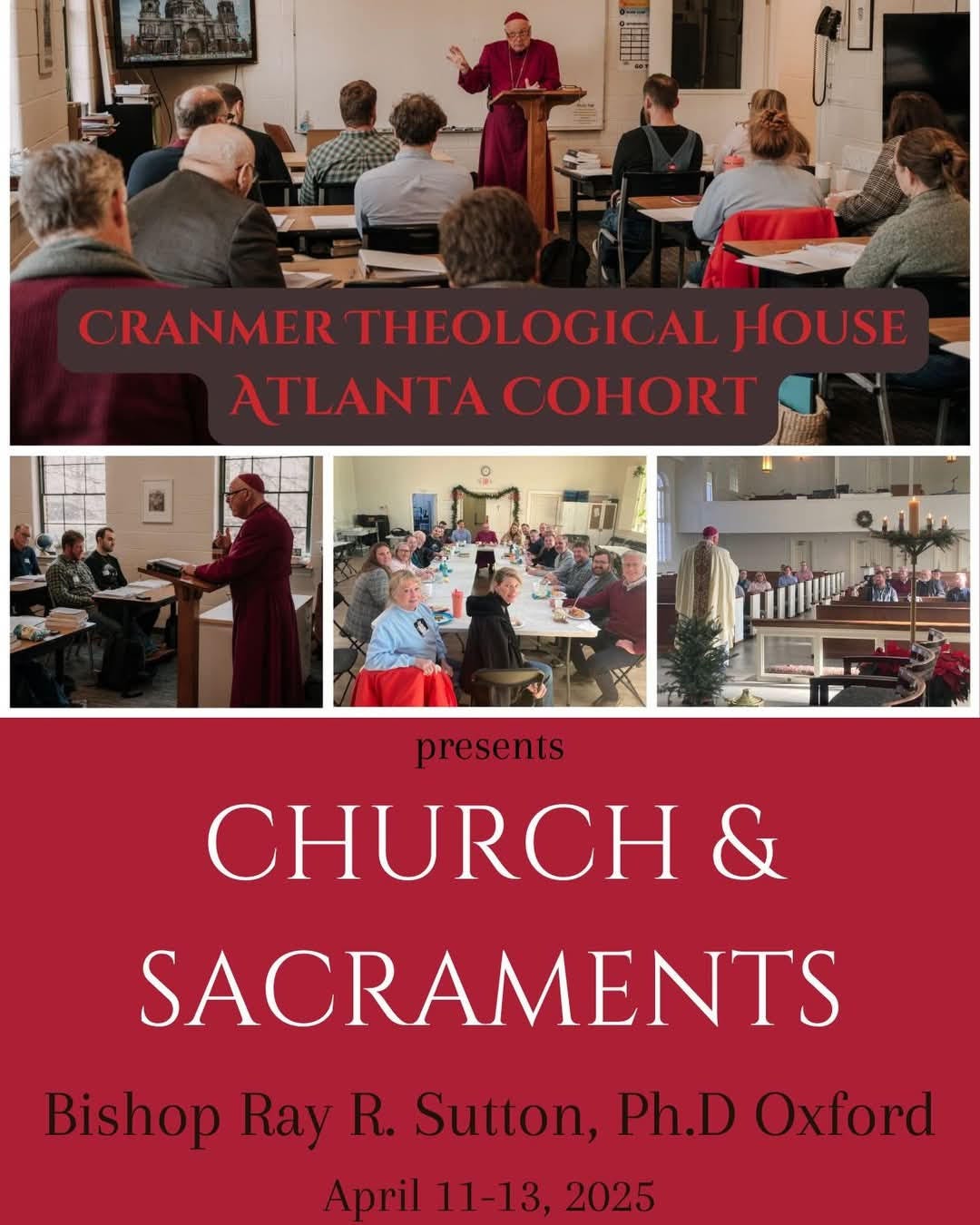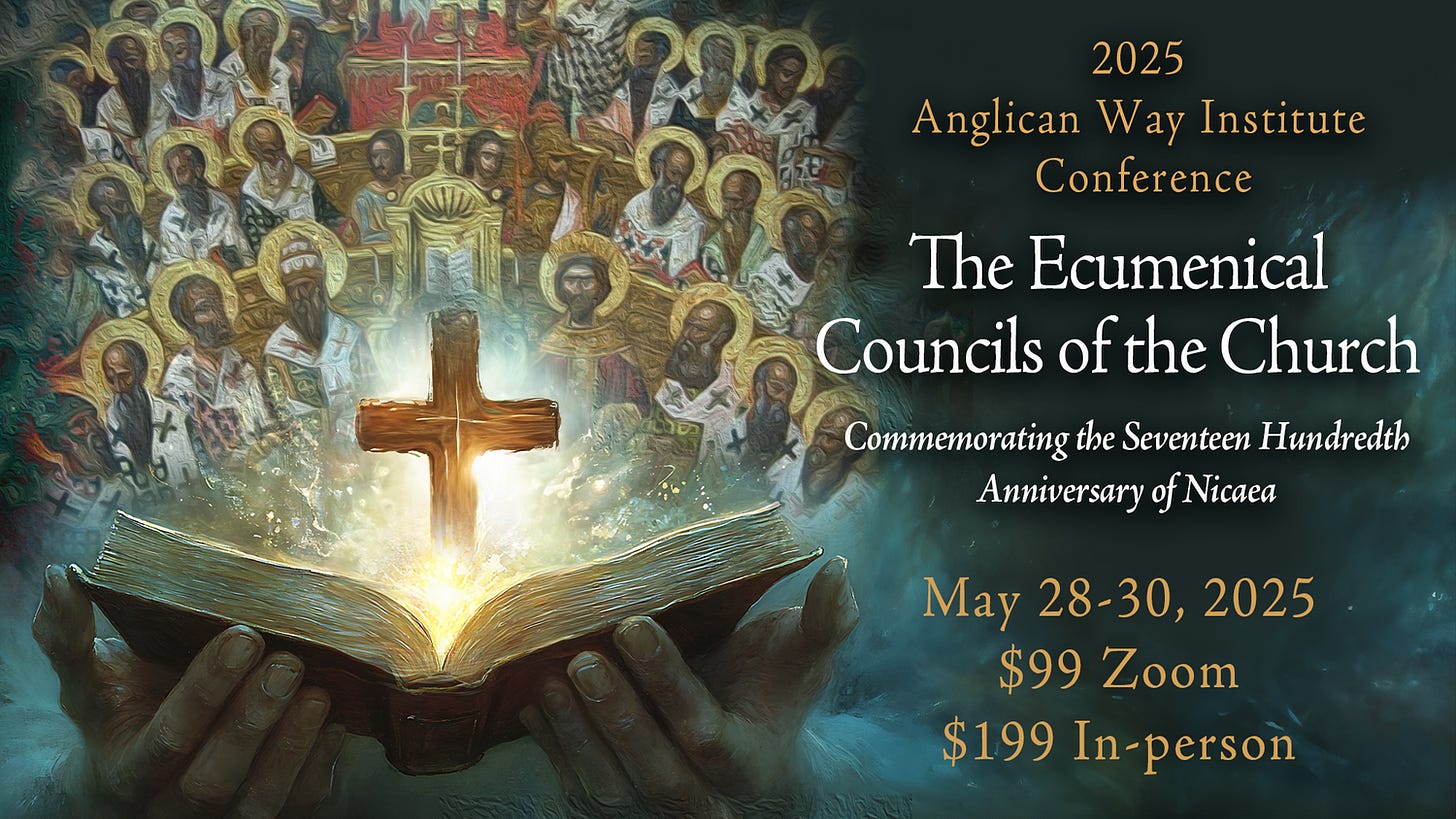St. Andrew's Messenger Week of Lent V
Although raised in a mainline Presbyterian home for a few years in my teens I became concerned about the direction of the Presbyterian Church (USA), into which the Presbyterian Church in the United States (the old Southern Presbyterian Church) had been absorbed (the past forty years have vindicated my concern and it seems there may have been an hereditary element to my misgivings -- several years ago I discovered that my grandfather, William A. Collins, served on the Board of Trustees of Concerned Presbyterians) and so, for a time, attended a Bible Church in my hometown. The congregation, which no longer exists, was very plain in worship but warm in fellowship and preaching, although I would differ with the Dispensationalist view that they took; the congregation is no longer is existence, but it was good to be in an environment where the Scriptures were seriously studied and I was blessed by the time that I spent with them.
One Sunday we had representatives of the American Board of Missions to the Jews, since reflagged as Chosen People Ministries, come and present a 'Christ in the Passover" meal, which was very educational and which certainly seemed to point to Jesus. Since that time I have seen it done in a number of other settings, including once in an Episcopal Church in Texas. Over the ensuing forty years, however, my enthusiasm for the practice has waned, however.
In an outstanding brief essay on the subject the Rev'd Michael Cochran, Church Planting Minister for the Gloucester Evangelical Presbyterian Church in Gloucester, England, notes that a number of differences exist in the modern Passover Seder and the meal in which Jesus would have partaken, most significantly, the absence of a sacrificial lamb, a key element that has been unavailable since the destruction of the Temple in Jerusalem in A.D. 70. As Mr. Cochran notes: "In AD 70, the Temple was destroyed. Since no new temple has ever been built, the ability to offer the sacrificial lamb has ceased, from a practical standpoint. This is such an important part of the Passover, that removing it will make modern Passover fundamentally different from the ancient practise. Indeed it takes away what is, from a biblical perspective, the primary point!"
That which is offered today has evolved and is largely based upon the Mishnah, an ancient and uninspired Jewish document irrelevant for Christians. As the Rev'd Dr. Robin Routledge, an Old Testament scholar, has published an extended comparison between Passover and the Last Supper in which he concludes: "It has been noted that in Jesus’ day the Passover Seder … was so different from current Jewish practice that participants in the latter are more likely to be confused, than to gain any helpful insights into the Lord’s Supper." Finally, in the book of Hebrews we are warned against returning to the ceremonial works of the law: "For it is impossible, in the case of those who have once been enlightened, who have tasted the heavenly gift, and have shared in the Holy Spirit, and have tasted the goodness of the word of God and the powers of the age to come, and then have fallen away, to restore them again to repentance, since they are crucifying once again the Son of God to their own harm and holding him up to contempt." (Hebrews 6:4-6 [ESV]).
In Christ, we have a new and more glorious Passover -- the Lord's Supper or Holy Communion. We have no need of a sacrificial lamb because Jesus died a horrible death upon the cross on our behalf, " . . . when Christ, had offered for all time a single sacrifice for sins, he sat down at the right hand of God, waiting from that time until his enemies should be made a footstool for his feet. For by a single offering he has perfected for all time those who are being sanctified." (Hebrews 10:12-14 [ESV]).
As an aside, this does not mean that I do not support efforts to reach our Jewish friends with the Gospel. The Churches Mission to Jewish People was founded in the Church of England and has been doing that since 1809. Their U.S. branch, CMJ-USA is one of the Anglican Global Mission Partners and is worthy of your support.
"Christ, our Passover lamb, has been sacrificed. Let us therefore celebrate the festival" (1 Corinthians 5:7b-8a [ESV]).
+++++++++++++++
Holy Week at St. Andrew's Anglican Church
The Sunday next before Easter, commonly called Palm Sunday, 13 April: The Blessing of the Palms (gathering on the lawn) and Holy Communion, 10:30am
Maundy Thursday, 17 April: Holy Communion and the Stripping of the Altar, 6:30pm
Good Friday, 18 April: The Way of the Cross: Nine Biblical Stations of the Cross on the Church Lawn (Weather permitting -- in the event of
inclement weather this will be held in the church), 6:30pm.
Easter Even, 19 April: Blessing of the Paschal Candle and Holy Communion: 7:00pm
Easter Day, 20 April: Holy Communion, 10:30am.
Please note that there will be no Sunday School on Palm Sunday or Easter Day; class will resume on 27 April.
Easter Lilies may be purchased and given in memory or honor of loved ones. The cost is to be determined but will be around $20 each; a signup sheet is on the literature table in the narthex.
+++++++++++++++
This week in the Reformed Episcopal Board of Foreign Missions Cycle of Prayer we pray for:
• Planning for summer youth camps in Europe
• GAP Year ministries for Reformed Episcopal graduates
• for all GAFCON ministries in Europe
• for Bishop Bill Atwood and ministry to Muslim Background Believers.
+++++++++++++++
The Men's Lunch will meet at 11:30am on Thursday, 10 April, at Guerrero Mexican Restaurant, 1109 U.S. Highway 80, Pooler.
+++++++++++++++
Cranmer Theological House has scheduled their second class for the Atlanta seminary cohort. Bishop Ray Sutton will teach an intensive class from April 11th-13th (Friday through Sunday). The course is "Church and Sacraments". You can find the full syllabus and RSVP at https://christthekingatl.com/church-and-sacraments-class.
Meals, breaks, and the Daily Offices intersperse the schedule. The schedule for the class is as follows.
Friday, April 11, 12pm to 7pm
Saturday, April 12, 8:30am to 7pm
Sunday, April 13, 11:30am to 3:30pm
All are welcome to take this class, either for credit ($625) or for audit ($250).
+++++++++++++++
The 2025 Anglican Way Institute (not to be confused with the Anglican Way Conference sponsored by the Prayer Book Society of the USA) will be held from 28-30 May at the Holy Communion Anglican Cathedral in Dallas, Texas. In commemoration of the Seventeen Hundredth Anniversary of the Council of Nicaea the conference will examine the Ecumenical Councils of the Church. The speakers will include:
The Most Rev'd Dr. Ray R. Sutton, Bishop of the Diocese of Mid-America and Presiding Bishop of the Reformed Episcopal Church.
The Rev'd Dr. D. Blair Smith, Associate Professor of Systematic Theology and President-appointee at Reformed Theological Seminary in Charlotte, North Carolina.
Dr. D. Jeffrey Bingham, Research Professor of Historical Theology and Jesse Hendley Chair of Biblical Theology at Southwestern Baptist Theological Seminary.
The Rev'd Dr. David R. Maxwell, Louis A. Fincke and Anna B. Shine Professor of Systematic Theology, Systematic Theology at Concordia Seminary, St. Louis.
The Very Rev'd Dr. Chad Hatfield, Professor of Evangelism and Missiology and former President of St. Vladimir's Orthodox Theological Seminary.
Distance registration is available at a reduced rate.
(The Rev'd) Drew Collins, Rector





